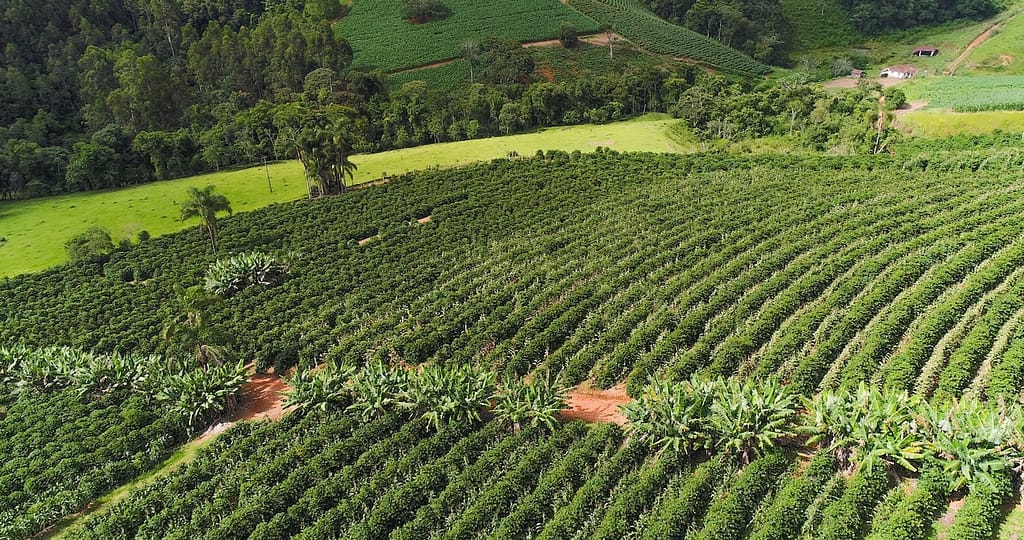[[{“value”:”Image: Marcelo/stock.adobe.com
Small-scale coffee farms in Latin America are on average more environmentally friendly than large-scale plantations, new Fairtrade research has revealed.
However, large plantations, which often produce coffee using unshaded monoculture, mechanisation and chemical inputs, are in a better position to quickly respond to market and legislative changes.
The Fairtrade study, Understanding the Climate and Environmental Impacts of Smallholder Coffee Farming, investigated existing academic and sectoral literature regarding the environmental sustainability of small-scale coffee production in five Latin American countries – Brazil, Colombia, Peru, Nicaragua, and Honduras – and compared findings with large-scale production.
Except for Brazil, smallholders who mainly grow their beans on small, remote, or mountainous plots of land, adopt different practices compared to large-scale plantations. This includes diverse shaded agroforestry systems that require fewer resources and in-puts, alongside other crops such as maize and beans, fruit, and timber trees.
These techniques contribute to carbon sequestration, biodiversity, food security, and climate adaptation and mitigation, especially when combined with agroecological practices and several types of certifications, including organic and/or Fairtrade.
Dr CJ Stanton, Senior Monitoring, Evaluation and Learning Manager at the Fairtrade Foundation says: “The results are very significant because, despite being a lucrative global industry with a retail value of over US$100 billion, 125 million people depend on coffee for their livelihoods. The sector is increasingly facing significant challenges such a market price volatility and escalating climate crisis which is affecting farmers’ ability to grow coffee.”
Study findings
The study focused on five key environmental areas: water, energy, greenhouse gas emissions (GHG), deforestation, and biodiversity.
It found coffee production impacts water through irrigation and waste management, particularly for smallholders in Colombia, Nicaragua, and Honduras.
Additionally, small-scale producers typically use less energy as small farms are often less mechanised.
Finally, while larger farms contribute more to deforestation, smallholders support biodiversity through shaded agroforestry, with a higher number of pollinators, low pesticide use and a higher portion of natural vegetation in the farm.
The study highlights that Fairtrade can contribute to climate action and sustainability in coffee production by supporting farmer-led environmental data collection, sharing effective practices, and collaborating with commercial partners to reduce their environmental impact.
Sixty per cent of the world’s coffee is produced in Latin America and the Caribbean, with small-scale coffee producers worldwide producing around 60 per cent of the world’s coffee.
Fairtrade International has certified 838,116 smallholder coffee farmers in 656 organisations across 32 countries and does not certify plantations. Fairtrade promotes sustainable practices through its coffee standards, which include criteria to protect forests, prevent deforestation, and prepare environmental risk assessments that identify issues that may affect the climate resilience of producers.
The post Fairtrade study finds small-scale coffee farms more sustainable appeared first on Global Coffee Report.
“}]]


